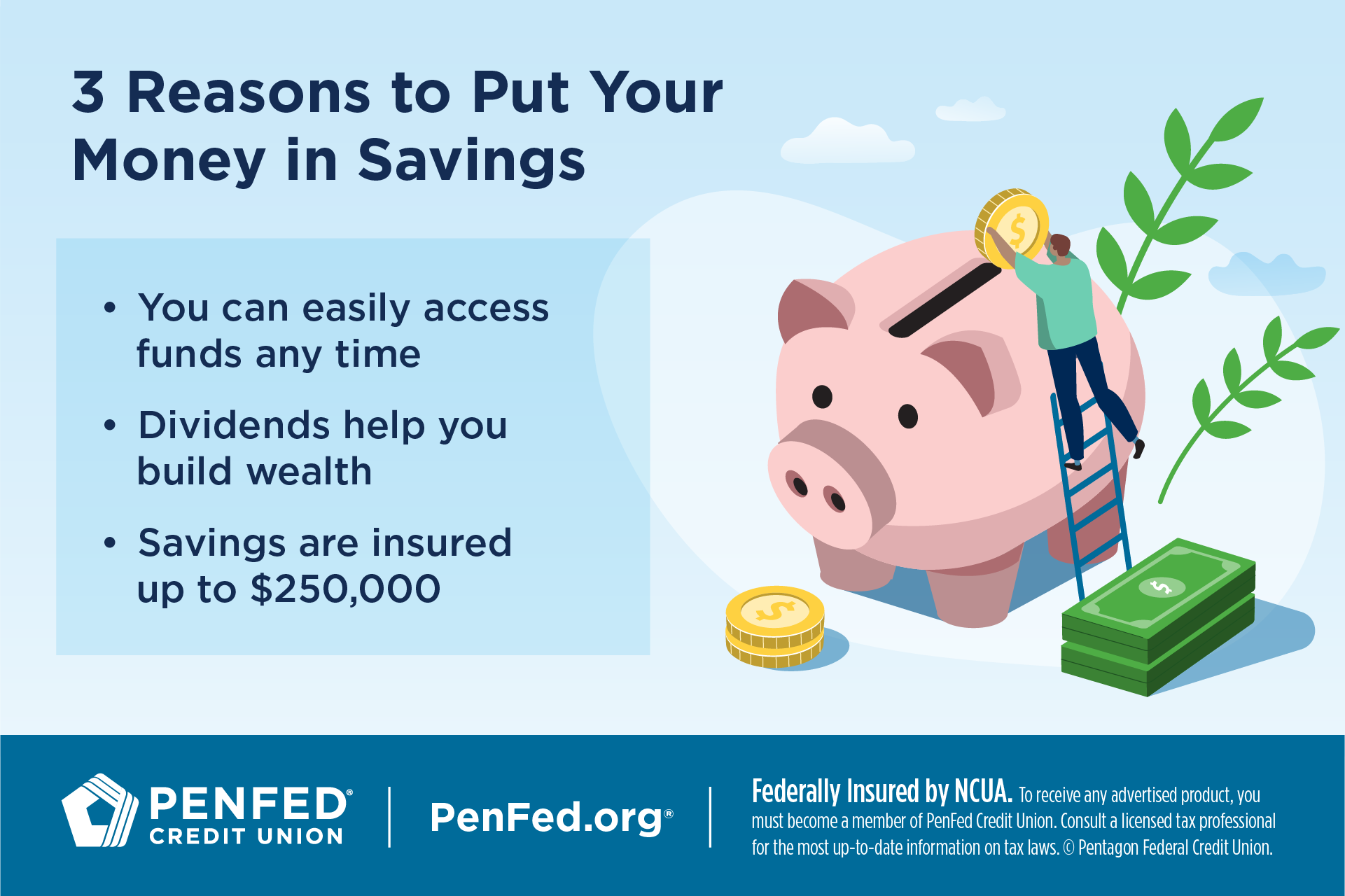CHECKING & SAVINGS
Should You Transfer Your Maturing Certificate Funds to Savings?
EXPECTED READ TIME:4 minutes
Whether you’ve had it for six months or six years, it’s always a little exciting when your certificate is heading toward maturity. But it also raises an important question — what should you do with that money now?

What Happens When a Certificate Matures?
What happens when your certificate matures depends on how you set up your certificate in the first place. You can set it up to automatically renew or you can cash out and close the account. If you don’t choose auto renewal, you basically have three options:
- Withdraw funds and either start using the cash or start a completely new certificate at the same or a different institution
- Transfer your funds to a savings account
What Does it Mean to Automatically Renew a Certificate?
If you chose this option when you opened your certificate, your institution will automatically renew your certificate once it matures. Renewing will reinvest your original deposit plus the dividends you earned into the certificate with the same or similar term at whatever the current rate is.
If the certificate is set up to renew, it usually comes with a short grace period when you can choose to do something else with your funds without a penalty.
Renewing will reinvest your original deposit plus the dividends you earned.
How Do Certificate Grace Periods Work?
That grace period for an auto-renewing certificate is often 7-10 days after the date of maturity, meaning the grace period is actually the first 7-10 days of your new, post-renewal certificate.
But that doesn’t mean you’re stuck with the certificate renewal — that’s why it’s called a grace period. Even if that new certificate starts up, if you act within the grace period, you can still transfer the money to savings.
If you act within the grace period, you can still transfer the money to savings.
Options may also vary depending on your specific certificate and institution, so make sure to read the fine print before putting all your money in that basket.
Why You Might Want to Consider a Savings Account
Certificates are a great option for wealth building, but they do have their drawbacks. A strong alternative is to transfer to a savings account. Here’s why we think that’s a great idea:
Flexibility
The biggest advantage of a savings account is you can access your funds at any time without an early withdrawal penalty. Came home from work to a broken fridge? Need to cover Henry’s trip to the vet? No problem — your money is just a few clicks or swipes away.
Choosing a high-yield savings account offers the best of both worlds — a competitive rate that can increase when rates increase.
Variable Rate
If rates rise while your funds are locked in an account, you won’t earn more on your certificate — but you may get a higher APY on your savings account. While you are unlikely to lose money on a certificate, your earnings might not be worth as much by the time it matures once you factor in inflation. Choosing a high-yield savings account offers the best of both worlds — a competitive rate that can increase when rates increase.
Consistent Saving
Certificates can help you save, but they won’t help you create a savings habit. That’s because you can’t add additional money to a certificate once it’s funded unless you have a special add-on feature. In contrast, you can add to your savings account regularly to build your savings faster.
Low Minimums
Although there are exceptions, many financial institutions require a minimum of $1,000 to open a certificate account. The minimum deposit to open a traditional savings account is much lower. In fact, you can open some high-yield savings accounts with as little as $5.
Benefits of Certificates vs. Savings Accounts
Should you roll over your certificate funds or move them to savings? Let’s consider the benefits of each:
|
Certificates |
Savings |
|---|---|
|
Inflexible — you cannot access your funds without penalties |
Flexible — access your money any time |
|
Usually offer higher but fixed APY |
Offer variable APY that rises when rates rise |
|
You cannot deposit more money once funded unless you have an add-on feature |
Add money whenever you want |
|
Often requires $1,000 minimum to open |
Very low minimums to open |
How to Transfer Your Maturing Certificate Funds to Savings
The easiest way to transfer your maturing certificate funds to savings is to choose that option when you set up your account. If you chose a different route when you set up the account, however, and you want to change your mind, you will likely have up until the end of that 7-10 day grace period to tell them you want your money going to a savings account.
When you receive the notice that your funds are maturing, or if they already have, contact your credit union or bank before the grace period on your new account ends. Then tell your financial institution what you’d like to do with the funds. Depending on available options at your institution, you may also be able to move the funds yourself using online or mobile banking tools.
You can usually choose a maturity option right from the start when setting up your account.
The Takeaway
It’s not wrong to let your certificate roll over a time or two, but it also might not be the best way to maximize your money’s potential. There are other ways to put your money to work, including the trusty ol’ savings account. After all, there’s a reason it’s the backbone of savings strategies.
Explore Your Savings Options
Discover the diverse offering of products, services, and support available to our members




